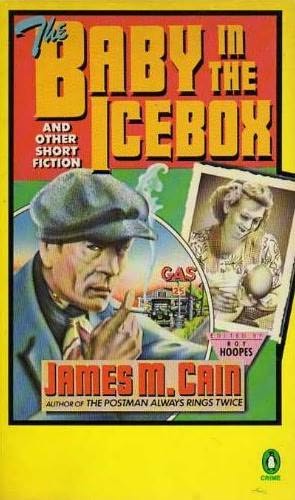
What a difference a week makes.
On Monday, an English teacher at one of the country's most prestigious college-prep schools called. He left a message on my answering machine informing me that the faculty there had considered me for a teaching post last year. That was news to me. I had never sent a vita or anything. All I remembered was meeting him once in graduate school a few years ago. I called him back.
Apparently an old friend, now teaching at another prep school in New England, bandied my name about so much at this school that a contingent formed with the mission of hiring me. It feels strange to have been talked about for the last few years without knowing about it. Anyway, I'm going to visit the school—right here in town—in April. The chair of the English department asked me to give a lecture, tour the school, etc. I think I would enjoy teaching literature again, getting paid for it (not much, to be sure, but a fortune when compared with the near-charity wage of a college lecturer), and finding myself in a stimulating environment for my writing. Still, the whole thing is so odd and unexpected that I'm not sure precisely what to think. I told the chair that I'd also like to coach the cross-country team if it were possible (it turns out that it is possible). Sort of a Garp impulse on my part, I suppose. I've talked with B and my Prestigious Poet Friend in Japan about the job. I'm no less confused, but I am reminded it's good to have friends. (B is easy to talk with, since he lives across the street; conversations with my PPF cost 39¢ per minute because he lives in Kobe, so his advice is more expensive.)
We'll see.
Also last week, I wrote about 5,000 words of a new novel I'm throwing away. Yet another false start. The writing was competent, I think, but if I'm not interested in the protagonist, who the hell will be? I am slowly beginning to realize that writing a draft novel every few months may not be possible for this scribbler. One manuscript per year sounds more reasonable. But maybe not--now I have to consider teaching again, since I fell ass-backward into it. Hm.
Tuesday, I found a good university press that may be interested in the first novel, which is nice. It's a press everyone knows, so their interest strokes my ego just so. Ahh. They will take around six months to get back to me, but I am reasonably certain they'll read the whole MS, at least. And perhaps I can publish without an agent after all. Hope rears its ugly head anew.
And on Friday, I ticked off another year in my early thirties with a fine party. The people were dear, I sampled nine varieties of single malt scotch in a blind test and identified most of them correctly (excellent present B), and I enjoyed having attention and gifts lavished on me (the cake, once again, will live on in legend, M!).
Earlier on the very same day, I found out my nascent kid is perfectly healthy. He will be a boy, weighs the right amount, has properly developed internal organs, and all the rest of the developmental jazz. The temptation is there, of course, to say the news was the bestest pwesent I could ever wish for. Ok, it's true. But to temper the saccharine quality of the experience, I relate for the record: on an ultrasound he looks like Skeletor.




